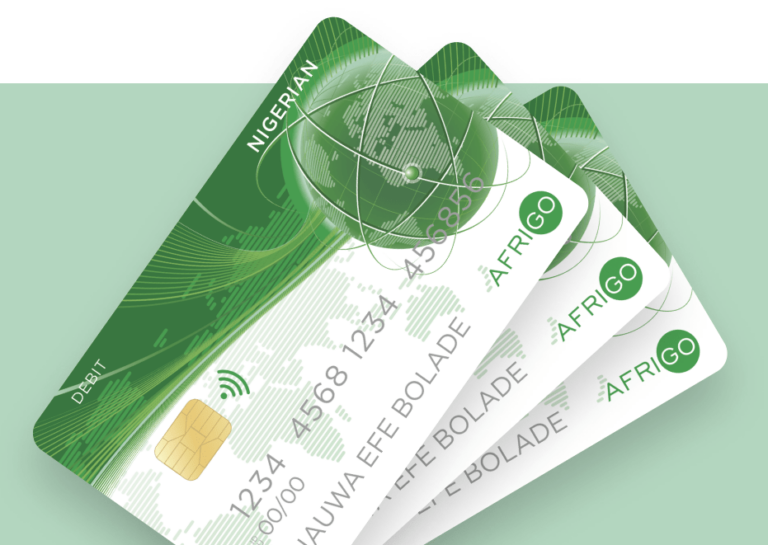Nigerian consumers are no strangers to using globally recognized payment cards like Verve, Mastercard, and Visa for daily financial transactions. For years, these international networks have formed the backbone of banking services across the country.
However, in 2023, the Central Bank of Nigeria (CBN) introduced an ambitious alternative: the Afrigo card—a homegrown, cost-effective payment solution designed to reduce Nigeria’s reliance on foreign card networks. The initiative was hailed as a step towards financial sovereignty, with a focus on enhancing inclusion and minimizing capital flight due to international transaction fees.
Despite its promising potential, Nigerians are still waiting for the full rollout of the multi-purpose Afrigo card, originally slated for launch before the end of 2025. Concerns are growing over delays and the lack of visible progress from the government agencies responsible for its production.
A Vision for Local Financial Independence
According to the Nigeria Inter-Bank Settlement System (NIBSS), the Afrigo card is part of a broader effort to localize financial infrastructure. The goal is to retain transaction fees within the country, safeguard sensitive financial data, and increase control over the digital financial ecosystem.
“The Afrigo card is a domestic scheme created by the CBN to enable in-country transactions—just like other debit cards—but through a fully local network,” reads a report obtained by SaharaReporters from NIBSS. “This initiative allows Nigeria to compete in the $18.2 billion card and payments market, challenging dominant players like Visa, Mastercard, Verve, and Interswitch.”
A core benefit of Afrigo is its lower transaction costs, which could significantly ease the burden on consumers and small businesses that currently incur high service fees with international cards.
A Strategic Digital Shift: Integration with eNaira
CBN officials have confirmed that Afrigo will be seamlessly integrated with the eNaira, Nigeria’s digital currency. This linkage enables both online and offline transactions—critical for rural and semi-urban areas where internet access is limited.
“The card is designed for inclusivity,” a CBN official stated. “It supports transactions in locations with weak or no connectivity and helps bring banking services to underserved communities.”
More Than a Payment Card: Multi-Functionality at its Core
The Afrigo card is not just a payment tool. It’s a multi-purpose instrument designed to improve identity verification, access to social services, and national security.
Each card will feature chip-and-PIN and magnetic stripe security, alongside a Nigeria Quick Response (NQR) code linked to the cardholder’s National Identification Number (NIN). This transforms the card into a verifiable ID, usable across public sectors like healthcare, education, and government services.
Additionally, the inclusion of a Machine-Readable Zone (MRZ) aligns it with international travel and verification standards, potentially making it valid for cross-border identification in the future.
The card will also support government initiatives such as:
-
Cash transfer programs
-
Health insurance enrollment and benefits
-
Student financial aid
-
Agricultural loans
-
Micro-pension schemes
-
Small business grants
By directly linking these services to a single platform, the government can improve transparency, efficiency, and security in distributing public funds—reducing fraud and bypassing unnecessary intermediaries.
Hope Amid Challenges
Many Nigerians see Afrigo as a welcome solution to longstanding issues in the country’s financial system.
Chidinma, a businesswoman in Abuja, explained: “Sometimes customers can’t pay because the POS won’t connect due to bank network issues. They leave without buying, and we lose sales.”
Another trader shared her frustration with failed transactions: “N10,000 was declined on POS, but not refunded immediately. I had to visit the bank several times. It took days.”
These frustrations persist despite the existence of over 2.7 million POS terminals across Nigeria. The World Bank also reports that Nigeria has just 16.15 ATMs per 100,000 adults, highlighting the lack of infrastructure needed to support a truly cashless economy—especially in rural areas.
Learning from Global Examples
Nigeria is not alone in launching a domestic card network. Other countries have blazed similar trails:
-
Ghana uses the gh-link EMV card
-
India’s RuPay, launched in 2012, is now one of the world’s largest domestic payment networks
-
Egypt and the UAE have introduced mobile token-based and digital card systems
These global benchmarks offer Nigeria valuable lessons in scaling, adoption, and integrating financial tools into broader national strategies.
Looking Forward: Adoption and Infrastructure Remain Key
While Afrigo’s vision is bold, its success hinges on public adoption and technical preparedness.
Economist Razaq Fatai praised the initiative but warned of hurdles ahead:
“It’s a great idea, especially with CBN leading the charge. It can strengthen financial sovereignty and aid in foreign exchange control. But getting Nigerians to trust and adopt the card is the real challenge.”
He emphasized the need for solid infrastructure:
“CBN must ensure merchant acceptance, mobile app integration, fast dispute resolution, and rural outreach. Without that, the benefits will remain theoretical.”
Conclusion: A National Milestone in the Making
The Afrigo card represents far more than a payment option. It reflects a strategic national push toward self-reliance, inclusion, and digital empowerment. If properly executed, it could revolutionize how Nigerians interact with financial and government services—safely, efficiently, and affordably.
Its eventual success will depend on a combination of strong political will, stakeholder collaboration, sustained public education, and robust infrastructure investment.
As anticipation builds, many Nigerians are cautiously optimistic that Afrigo can mark a significant milestone in the country’s journey toward a modern, cashless future.

